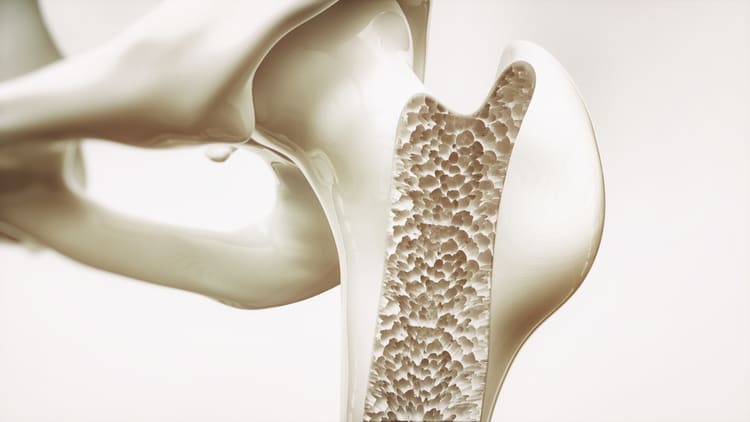Osteoporosis: What Causes It, and How to Prevent It

Did you know that your bones are always growing and changing? Contrary to popular belief that we hit one height and stay that way, our bones continue to evolve over the course of our lives. They dissolve and grow back again—sometimes, the whole skeleton can be regrown within the time span of only 10 years. It’s obvious to see the way a child’s bones change, however, it’s not always as easy to notice the changes in adults. And unfortunately, these changes aren’t always positive.
Osteoporosis occurs when the bones in your body begin to thin and become brittle. This weakened density makes it easier for the bones to break or splinter. Osteoporosis is more common in women than men, but can affect both genders just the same.
What causes osteoporosis?
There’s not just one cause of osteoporosis—they range far and wide. But here are some of the most common reasons that it begins.
Low Estrogen:
When women have lower levels of estrogen in their bodies, they run a higher risk of developing osteoporosis and having an overall weaker bone density. This decrease in estrogen can happen for a variety of reasons, ranging from the onset of menopause in middle-aged women to eating disorders in pre-menopausal women. In other words, it can happen to anyone regardless of age. Men can also get osteoporosis from low levels of estrogen, but not in the way you might think—their bodies convert testosterone into estrogen.
Lack of Calcium:
There’s no doubt about it: Our bodies need the right amount of vitamins to thrive and work the way they’re supposed to. Especially calcium. Having low calcium levels is very dangerous, since calcium promotes heart health, organ strength, muscle vitality and more. Calcium keeps our bodies strong, right down to the bones. And if you aren’t getting enough calcium, your bones run a higher risk of degenerating.
Unhealthy Lifestyle:
When you drink, smoke and don’t exercise, you run the risk of developing a number of life-altering diseases. Osteoporosis is one of them. Living in excess without enough physical activity weakens your immune system and your bones, making it more likely that you’ll develop osteoporosis.
How to prevent osteoporosis:
Some causes of osteoporosis are genetic and unavoidable. Others, however, can be prevented. And doing so is completely up to you. Here’s how.
- Eat a balanced, nutritious diet with plenty of calcium. This will keep your bones strong.
- Get enough Vitamin D. Try getting a little sunlight every day, or take Vitamin D capsules.
- Get active. Make sure you do weight-bearing exercises to increase the strength of your muscles and your bones alike.
- Stop cracking your back and knuckles! Or any bones in your body, for that matter. This can weaken them significantly.
Sources:
Taylor, Rebecca. (N.D.) What Causes Osteoporosis? And Why?
www.webmd.com/osteoporosis/features/causes
